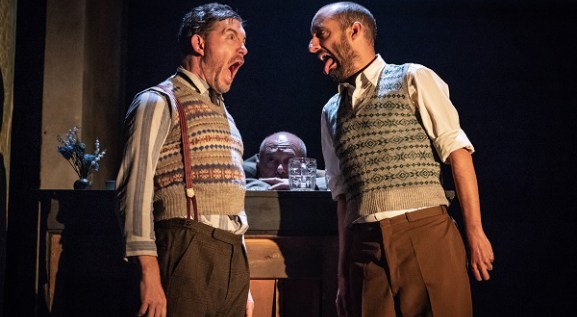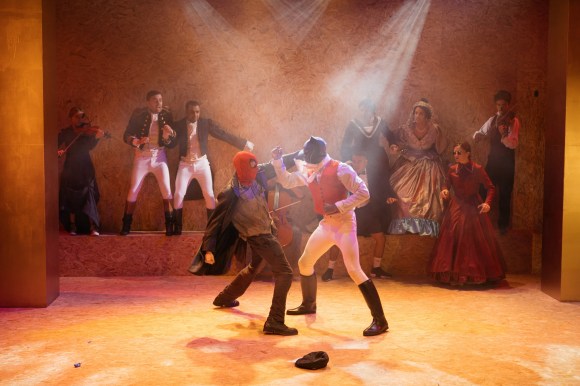
The Sh!t-Faced Shakespeare Company, now Magnificent Bastard Productions, have been bringing various Shakespeare plays to theatres around the UK for a number of years. It is an improv styled show where one of the cast has drunk one third of a bottle of spirits and a number of beers before taking to the stage. The comedy comes from the sober actors attempts to keep their drunken compatriot onstage and on track.
It is great fun to watch and it also looks like it is great fun to take part. Drunken Hamlet takes pleasure in his leeway to make things difficult for the rest of the cast, trying to push them off course and attempting to make them laugh. There is audience participation, in that a couple of audience members are chosen to call for the drunk actor to have another drink if they feel that he is sobering up. Also, Polonius is played by an audience member, this is a brave choice, given that his is the first death scene and the only people on stage are the audience member, the drunk actor and Gertrude, his mother.
It is a good introduction to Hamlet, because it zips through the simplified storyline in around an hour and a half. Drunken Hamlet forgets his lines surprisingly seldom – he makes a great fist of the “to be or not to be” soliloquy despite being made to drink while reciting it- and those parts where he does get lost he has the professionalism to give the audience a synopsis of the scene in modern language.
Hamlet, of all Shakespeare’s plays, is the one that is most often taken too seriously and it is often forgotten that these plays were written as mass entertainment, and that the performances as well as the audiences were raucous and bawdy. This version emphasises that element of the Bard and works very well on that level. I really enjoyed Sh!t-Faced Shakespeare’s Hamlet and I look forward to seeing others in their repertoire in future.













